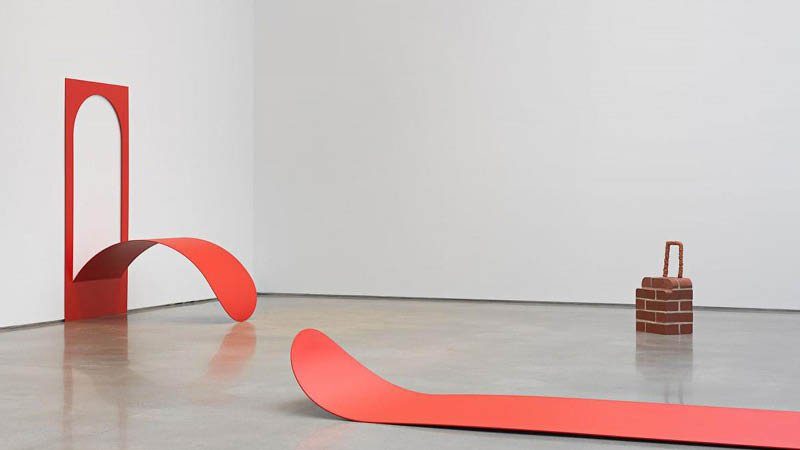JUDITH HOPF - Wednesday, 2nd December, 8pm
Since the 1990s, Judith Hopf (born 1969 in Karlsruhe, DE) has been developing an independent artistic language in the form of sculpture, film, drawing, performance or even stage design. In her works, Hopf addresses social inscriptions and power structures in political and private realms and the impact of visible and invisible architectures, technology and objects, on the human body and its movements. Often sourced from everyday as well as modern and postmodern aesthetic vocabulary and materials such as brick, concrete, glass, her works challenge habituals views, representations and behaviours. Judith Hopf lives and works in Berlin.
Since 2008 she is Professor and Vice-Rector at the Städelschule, State Academy for Fine Arts, Frankfurt/Main. Hopf presented solo exhibitions at Metro Pictures, New York in 2019 and at the National Gallery of Denmark, Copenhagen in 2018. She has had additional one-person shows at KW Institute for Contemporary Art, Berlin; the Hammer Museum, Los Angeles; Museion, Bolzano, Italy; Neue Galerie, Kassel; Maumaus, Lisbon; PRAXES Center for Contemporary Art, Berlin; Malmö Konsthal, Sweden; Studio Voltaire, London; and Badischer Kunstverein, Karlsruhe. She has also participated in Documenta XIII, La Biennale de Montréal, and the Liverpool Biennial.
Jour Fixe is a student-run lecture series and initiative from the Academy of Fine Arts Munich.
*The lecture will be held in English.
- - - - - - -
Upcoming Events
HARIS EPAMINONDA - Tuesday, 26th January - 8pm
Berlin-based, Cypriot-born artist Haris Epaminonda carefully arranges found images, objects, and film/video footage together in space. Interested in how objects’ meanings are transformed when placed in new environments, the artist reorganizes and reconfigures artifacts from different cultures and eras—such as found book pages, textiles, carvings, and statues—into new sculptural and architectural constellations. Developed on-site and in direct response to the gallery architecture, Epaminonda’s work uses abstraction and fragmentation to create new narratives and readings, collapsing the temporal distance between the past and the present. The end result is a subtle transformation of our understanding of material, space, and form.

